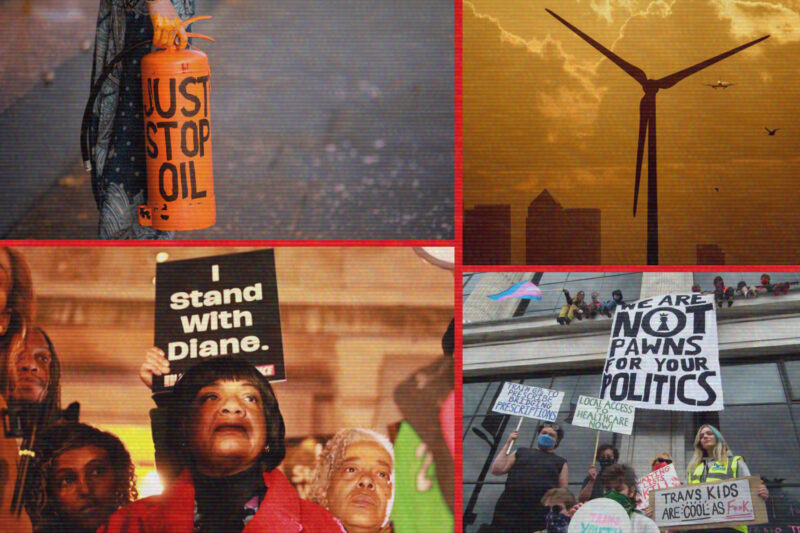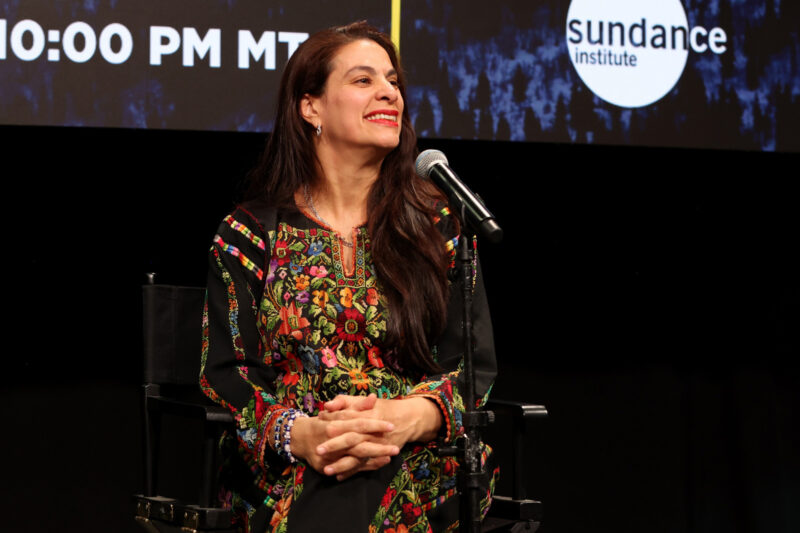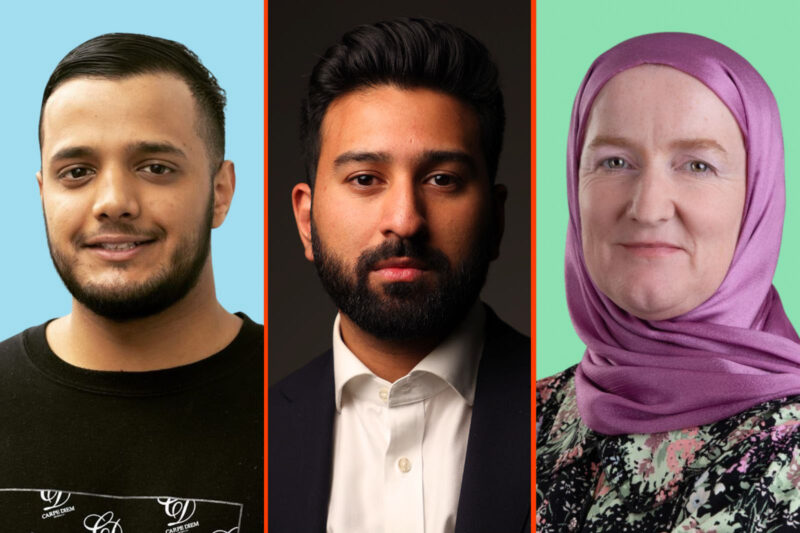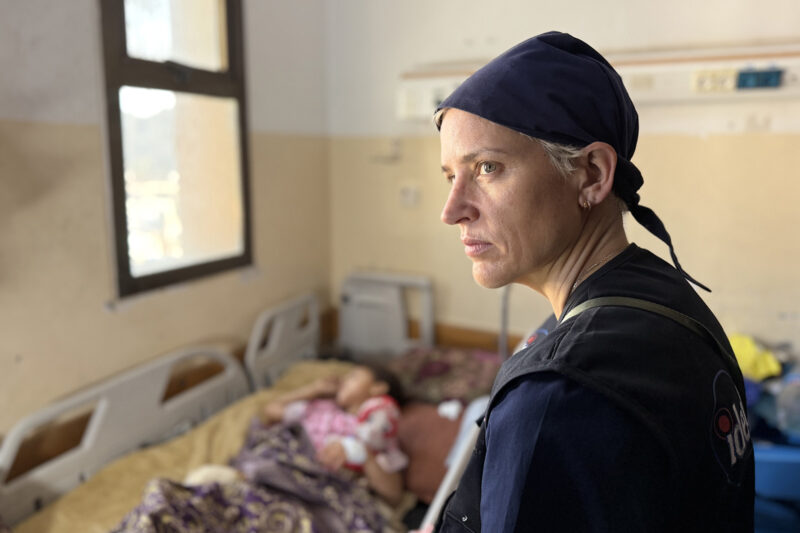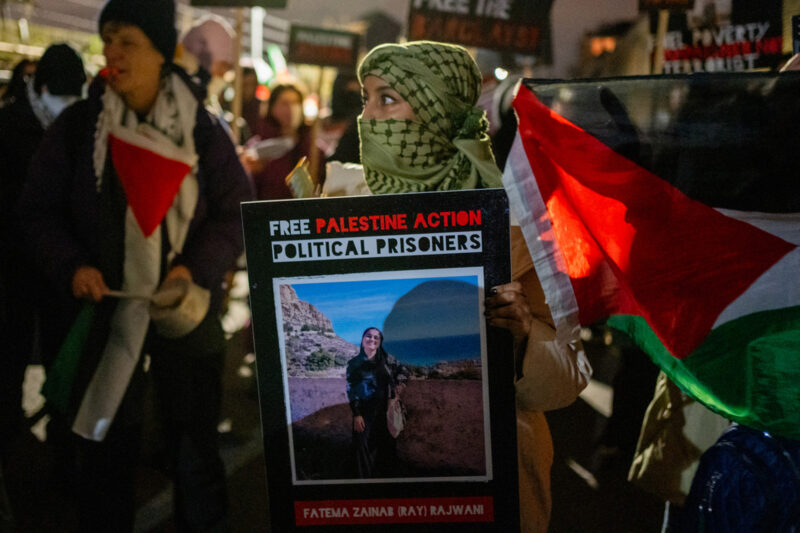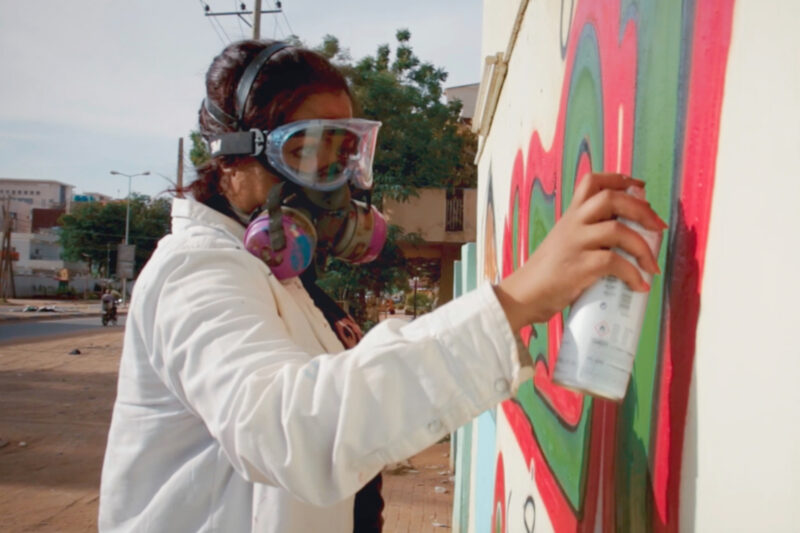My literary idols have failed the moral test on Gaza
At school, books by Zadie Smith and Margaret Atwood taught me about identity, feminism and justice. Yet now those same writers are largely lost for words in the face of Palestinian deaths
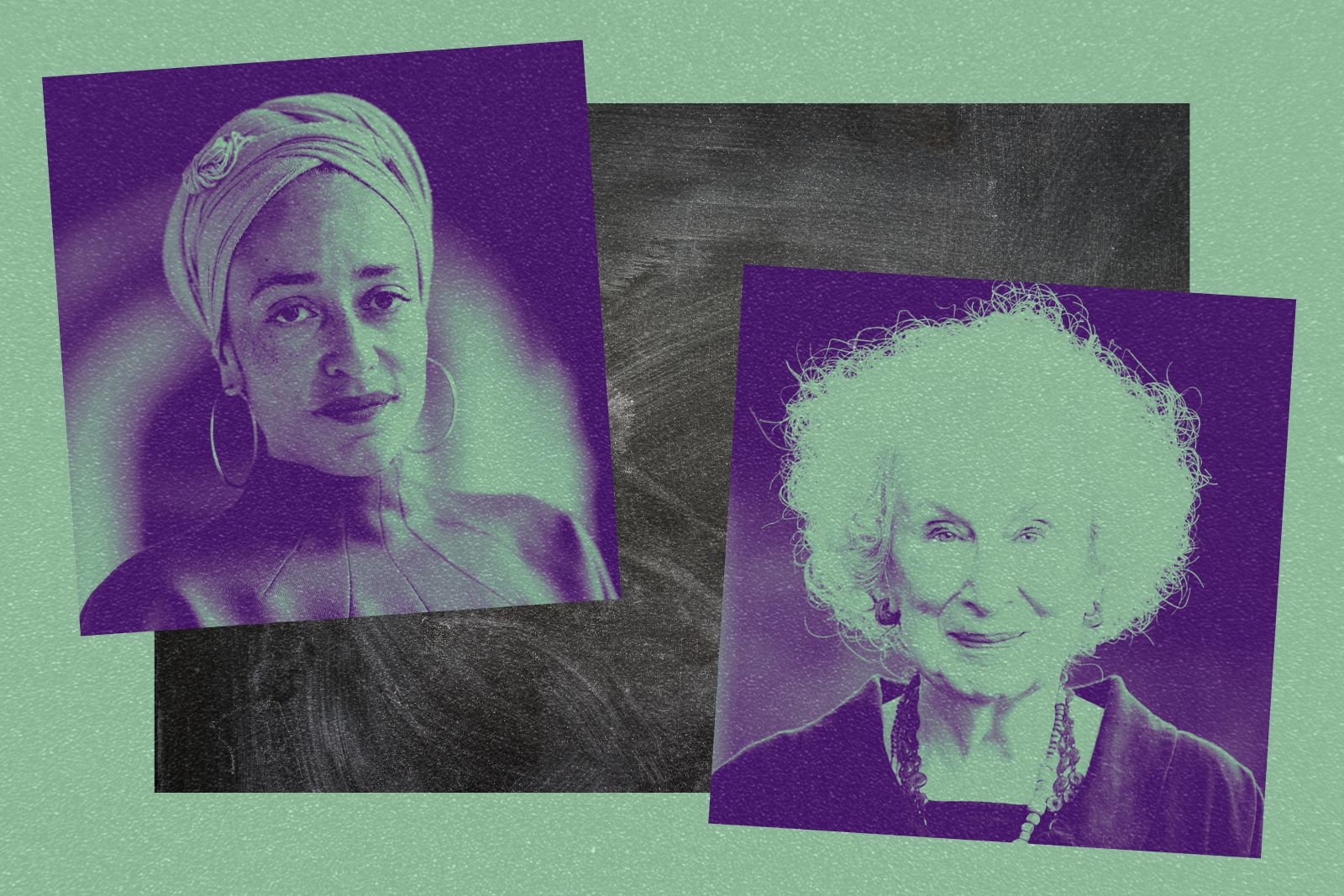
I first encountered Zadie Smith in 2011. White Teeth sat under the heading “Identity” on a list of recommended books for the A-level English course I was about to begin. Her award-winning debut novel, about the lives of wartime friends, soon became my favourite book, possibly because it was everything I had been taught literature was not.
Having been schooled on a diet in which the most exotic text was John Steinbeck’s Of Mice and Men, I was starved of representation without knowing it. To a Muslim teenager trying to understand her own English-Libyan identity, the backdrop of a multicultural London and characters with names like Samad and Alsana felt like meeting myself on the page for the first time.
On its publication in 2000, White Teeth, which won a number of major awards including the Commonwealth Writers’ Prize for best first book, was received as a modern classic and a blueprint for a certain kind of multicultural Britain. If you read it, you were making a statement about your own politics. And in the Blairite Britain in which it was written, those were seen as the right politics to have.
A few months after my introduction to White Teeth, I began studying The Handmaid’s Tale. Included in a curriculum on feminist literary theory, Margaret Atwood’s seminal novel seemed less fictional dystopia and more Feminism 101. Without any understanding of how Islam and feminism could coexist, I embraced Atwood’s social polemic as my own: my notions of womanhood intersecting with race, class or faith flew out of our classroom window when there was religion to demonise or men to hate.
Since then I’ve come across many other women, like me, who were all fed the same literary diet as students: an activism that was only as radical as the status quo it sought to uphold. Our feminism was to come from Atwood. Our understanding of identity and multiculturalism from texts such as White Teeth and Monica Ali’s Brick Lane. Our politics was derived from the likes of Khaled Hosseini’s The Kite Runner.
As I return to these texts, I find myself struggling to process their flaws. As an English teacher, I have felt constrained by a national curriculum that has barely advanced since I studied it more than 15 years ago. While these same writers remain on syllabuses across the UK, they have slowly revealed themselves to be far from the social justice pioneers they are presented as.
Smith’s literary reputation allows her to overlook the perceived banalities of right and wrong
The Muslim characters that I had once been drawn to in books such as White Teeth and Brick Lane have morphed into the same Islamophobic stereotypes that often occupy tabloid newspapers. The Handmaid’s costume, held up as the physical archetype of patriarchy, increasingly looks like a lazy interpretation of a hijab or an abaya — items I wear most days. The Afghan characters in Hosseini’s novels that I once cried over now seem like interventionist props whose flaws help to justify western military action. When not trading in cultural stereotypes, some of these authors also aided the imperialist politics of a post-9/11 US.
Now, nearly eight months into Israel’s disastrous incursion into Gaza, that age-old question of separating the art from the artist has never felt so immediate. I had already begun to fall out of love with my once favourite writers, but seeing them fail to respond to a genocide occurring in real time makes it clear they were never writing for people like me.
In early May, amid the barrage of filmed atrocities from Gaza occupying our social media feeds, Zadie Smith wrote an essay in The New Yorker reflecting on the US campus protests in support of Palestine. In her essay, Smith suggests that while student protests at US universities hold merit, it is “cynical and unworthy of this movement” to view what is happening in Gaza as somehow more substantial or important than the feelings of students who may have felt unsafe on campus.
Smith’s literary reputation allows her to overlook the perceived banalities of right and wrong. In the article I feel that she seems to minimise the scale of the casualties in Gaza when she writes “in the case of Israel/Palestine, language and rhetoric… always have been weapons of mass destruction”.
In a conflict in which tens of thousands of children have been murdered and maimed, Smith focuses on the feelings of an imagined Jewish student who “walking past the tents … finds herself referred to as a Zionist, and … is in that moment, the weakest participant in the zone”.
While Smith at least ventured on to a campus, Atwood has largely been silent on Gaza, despite being vocal about other political events such as human rights violations in Iran and Russia’s invasion of Ukraine. In early May, the Canadian novelist shared an article on X — without posting her own comment — that lambasted the boycotting by a number of prestigious writers including Naomi Klein and Hari Kunzru, of the World Voices literary event over Gaza as “bullying writers into silence”.
Yet two months before, Atwood had signed an open letter from dozens of Royal Society of Literature Fellows concerned at the alleged censorship of an article “sympathetic to Palestine”. Given that Atwood has a track record of criticising attacks on writers’ freedoms across the globe, is it too much that I expect her to comment on Israel’s targeting of Palestinian writers and journalists? Her silence speaks volumes about which lives matter to our cultural elite and which do not.
Other guardians of the written word have failed us too. The members of PEN America, a group promoting free expression around the world, were revealed to be internally divided earlier this month over the situation in Gaza amid criticism that it had been painfully slow to report on the deaths of scores of Palestinian writers, artists and journalists despite its vigorous stance on Ukraine.
Similarly, the Pulitzer Prize Board this year gave its International Reporting award not to the slayed journalists of Gaza but to the staff of The New York Times, who have been accused of anti-Palestinian bias, not least owing to the discovery of a leaked memo briefing journalists to avoid terms such as “Palestinian”, “occupation” and “settlers”.
It is indulgent to talk of grief in a time of genocide, but it is something like a loss, or perhaps a betrayal, to discover that a person whose insights you once admired thinks there is nuance to military occupation and genocide. That the aesthetics of Muslim identity are fair game for a career in literature, but not enough to warrant condemnation of the killing of more than 34,000 people.
Smith’s New Yorker essay ends with the lines: “It is my view that my personal views have no more weight than an ear of corn in this particular essay. The only thing that has any weight in this particular essay is the dead.” But as events in Gaza have shown, some matters do demand concrete answers, not least from those whose writings claim to understand the world we live in.
 Newsletter
Newsletter


